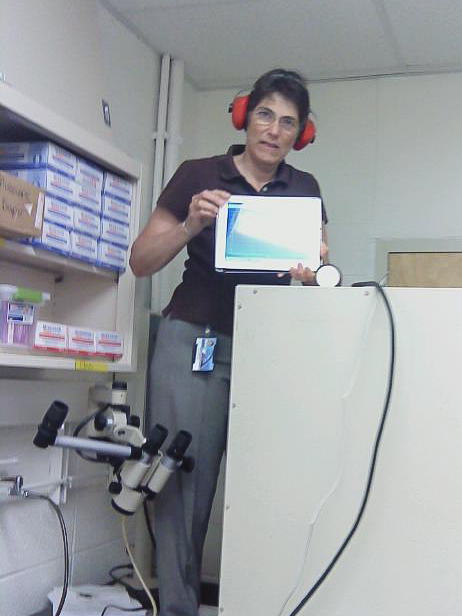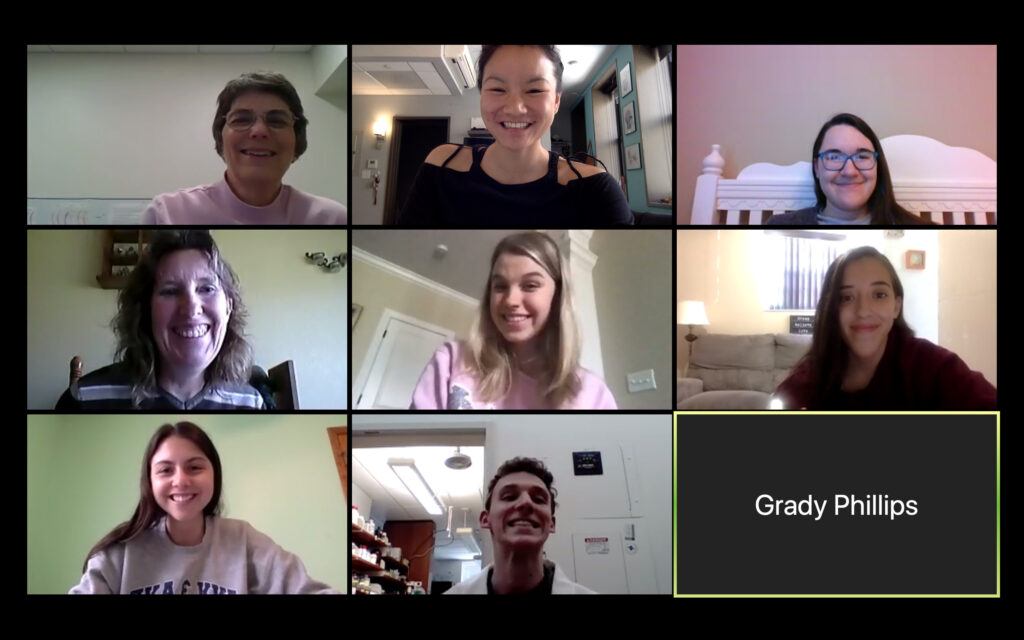
Michael Anne Gratton, PhD, and her lab are using a mouse model to explore how Alport Syndrome, a rare genetic condition, causes hearing loss. Recent findings have highlighted the mechanisms underlying Alport symptoms and identified therapeutic interventions that may prevent kidney dysunction and hearing loss in these patients.
Alport Syndrome is a rare genetic disorder characterized by progressive kidney disease and abnormalities in hearing and vision. Reports from the Alport Family Foundation reveal that while the kidney disease requires weekly dialysis or life-long medical therapy after successful kidney transplant, it is the hearing loss that is most bothersome to these patients.
According to Dr. Gratton, there are a number of challenges to treating and studying this disorder:

- The syndrome is due to a mutation in one of three genes located on the X chromosome that encodes a novel form of type IV collagen. Type IV collagen is the major structural component of basement membranes, an extracellular protein matrix that connects epithelium (like skin) to underlying connective tissue.
- The progressive nature of the disease means that many patients are not diagnosed until their late teen years or early adulthood.
- Alport syndrome is currently treated symptomatically, so while some medications can delay the progression of kidney disease and the onset of kidney failure, no rescue of hearing loss has been reported. Current therapies do not prevent or repair the underlying damage to the basement membrane.
To overcome these challenges, the lab uses a mouse model expressing a genetic recessive variant of Alport Syndrome, called COL4A3. The group have been working diligently to characterize the hearing loss and underlying structural damage using physiologic, molecular, ultrastructural and biochemical techniques. They are particularly interested in identifying the initial changes to basement membranes surrounding capillaries in the stria vascularis of the cochlear (inner ear) lateral wall.

More recent work has explored the ability of various pharmacological agents to rescue or prevent the Alport-associated hearing loss and kidney dysfunction.
To date, the lab has successfully characterized the ultrastructural changes occurring in the mouse model and shown that cochlear pathology has a later onset than kidney dysfunction. One of the earliest changes is the detachment of pericytes (a supporting cell of blood vessels) from capillaries which leads to basement membrane thickening in stria vascularis. The resultant hypoxia or lack of oxygen promotes an inflammatory cascade the renders the mice susceptible to noise-induced hearing loss.
More importantly, the lab has shown that capillary basement membrane thickening can be prevented by treatment with an endothelin A (a vessel constricting peptide) receptor blocker. Treatment with Sparsentan, a dual endothelin/angiotensin II receptor antagonist not only improves kidney function and lifespan in the Alport mice, but also reverses strial capillary basement membrane thickening and susceptibility to noise-induced hearing loss.

The work has not been without its challenges. With the help of commercial developers, PTS Diagnostics and Promega, the lab is trying to develop better assays to evaluate vascular permeability and metabolic stress in the cochlear later wall.
The effort has been a collaborative one, using both internal and external talents. Ruth Gill, Grady Phillips and visiting research scientist Brendan Smyth, MD, PhD, have assisted in the effort, as have a number of WashU audiology and undergraduate students.
Work on this project has been a 20-year collaboration with Dominic Cosgrove, PhD, and his lab at Boys Town National Research Hospital in Omaha. The project has been funded by NIH and more recently by Travere Therapeutics, Inc.
The lab also studies a variety of issues associated with age-related hearing loss. To learn more, please contact Dr. Gratton at grattonma@wustl.edu.